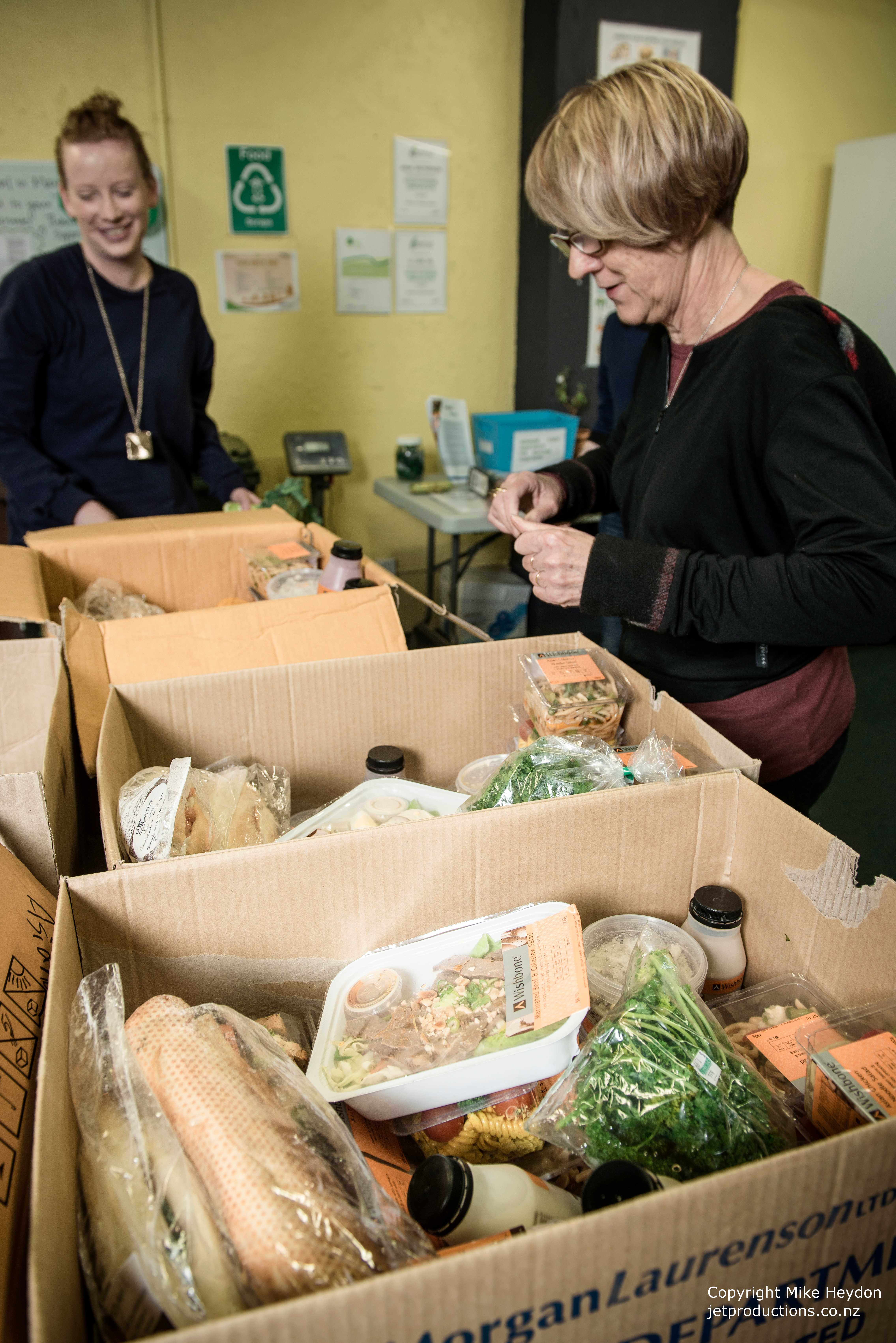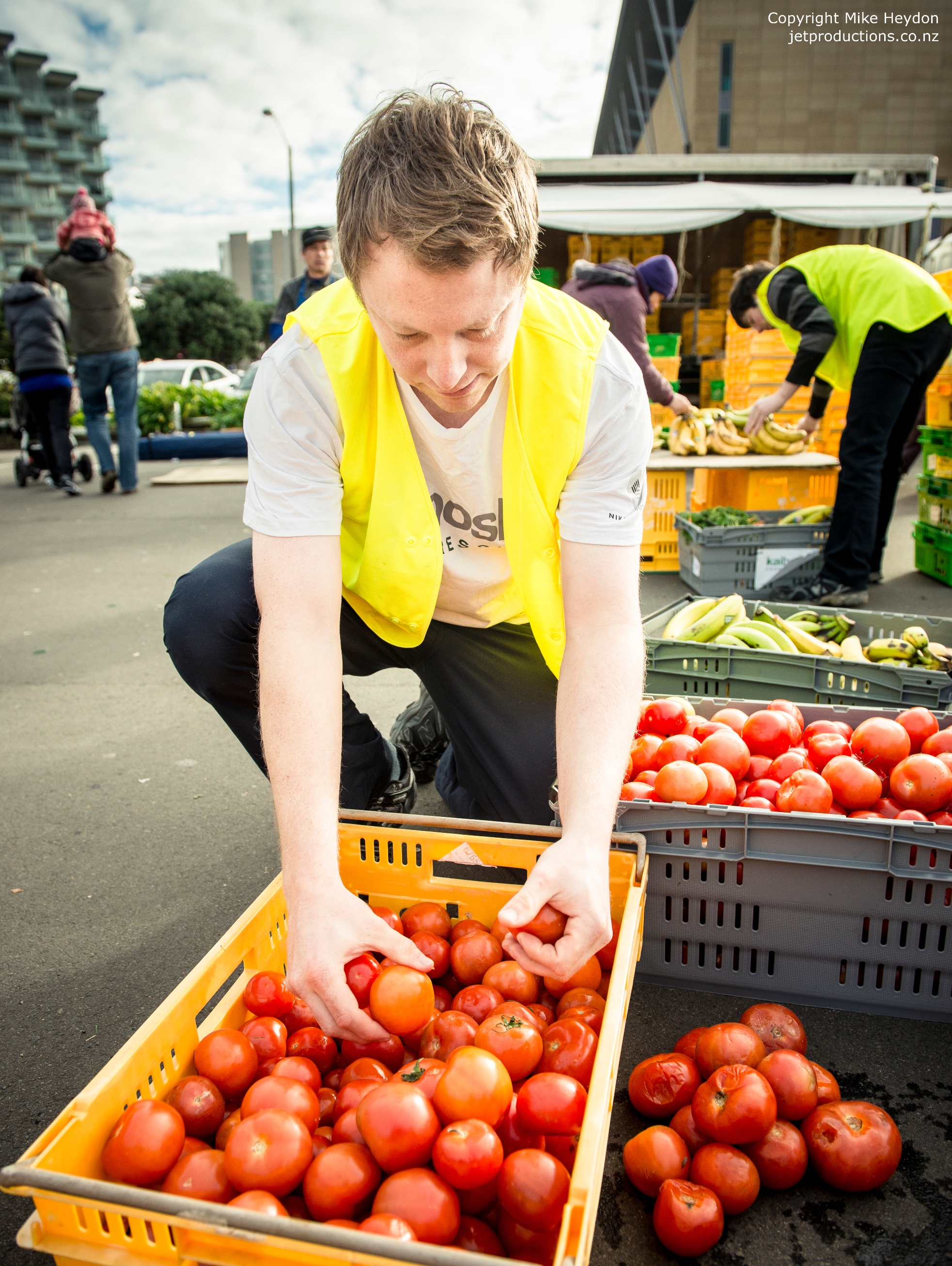Using Technology to Improve Food Recycling at a New Zealand NGO
By Denise Fuentes, Principal Engagement Manager, Microsoft Services New Zealand
Kaibosh is a Wellington-based non-profit that acts as a link between the food industry and charities that support people in need. Since 2008, Kaibosh has been redistributing discarded food—from restaurants, bakeries, food shops and supermarkets—to more than 25 local organisations. These foods are safe to eat, but are discarded due to being close to their “best by” date or are damaged in some way that impacts their saleability.
As many as 85 volunteers are needed to help collect and sort the food seven days a week. My husband and I started in 2011 by helping with fortnightly food sorting. Food and produce are collected on a daily basis from bakeries, supermarkets and such, weighed, sorted and redistributed to organisations like the Wellington City Mission, the Salvation Army and local food banks. Each month, we receive about 10,000 kilogrammes (10 tonnes) of food. That works out to about 28,500 meals!
We are so impressed by the collaborative model Kaibosh has created to alleviate two significant issues in our community: food waste and the needs of underserved individuals and families. The scale and impact of their work testify to the dedication of the Kaibosh team and the relationships they have established with a wide range of committed community-based organisations and retailers.
Kaibosh is funded by the Wellington City Council, the New Zealand government and private donations, and has committed to clear accountability through precise documentation of food donation sources, donated amounts and recipient charities.
Until recently, the volunteers had been using handwritten paper records and calculating details manually. A volunteer would then spend four hours each week entering the same data into a spreadsheet for regular reporting. I decided to ask colleagues at Microsoft for ideas on streamlining this process, and I found my answer in Microsoft Excel enthusiast Antony Willis, our Principal Premier Service Delivery Manager.
I set up a meeting between him and the Kaibosh management team to assess their needs and future plans, after which Antony visited Kaibosh to observe a sorting session. He came up with a Microsoft Excel spreadsheet solution that uses:
- Dropdown menus, which eliminated duplication in data entries; and
- PowerPivot, which automates daily totals, enables roll-up reporting that the Kaibosh management requires, and has powerful analytics tools to aid future decision-making and reporting
 After its implementation in late 2013, Anouska Isaac, Volunteer Coordinator at Kaibosh, wrote to us, “The spreadsheet solution created for us by Microsoft has made a huge difference to the speed and accuracy of our food statistics tracking. While volunteers previously needed to write all the figures down and add them manually, they can now enter the information just once—the spreadsheet adds up the figures as they go, showing clearly how much food has been donated and allocated.”
After its implementation in late 2013, Anouska Isaac, Volunteer Coordinator at Kaibosh, wrote to us, “The spreadsheet solution created for us by Microsoft has made a huge difference to the speed and accuracy of our food statistics tracking. While volunteers previously needed to write all the figures down and add them manually, they can now enter the information just once—the spreadsheet adds up the figures as they go, showing clearly how much food has been donated and allocated.”
She added, “This new system has also made reporting much more efficient, significantly reducing the amount of time that it takes for staff to pull out relevant information.”
It is great to see how one relatively simple solution can make such a big difference, and we hope to work with Kaibosh to improve the system further.
